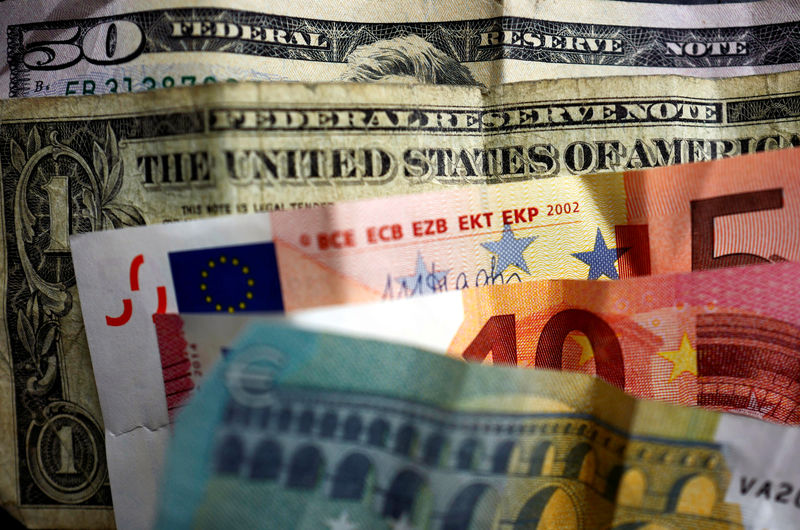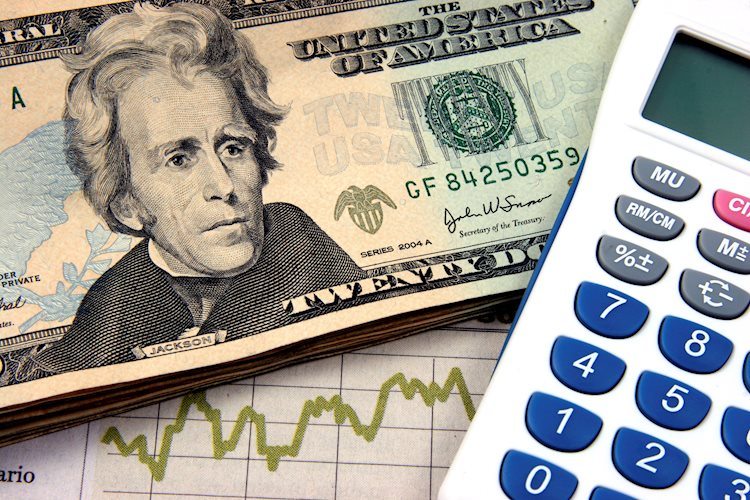Investing.com – The U.S. dollar retreated from elevated levels Wednesday, pausing its recent rally ahead of the release of key macroeconomic data that could alter expectations for future Fed rate cuts.
At 05:30 ET (09:30 GMT), the Dollar Index, which tracks the greenback against a basket of six other currencies, traded 0.2% lower at 104.037, after reaching the highest since the end of July on Tuesday.
Dollar slips with labor data in demand
The dollar has been climbing of late as recent economic readings have pointed to a resilient economy, resulting in traders paring back their views on the pace of rate reductions by the Federal Reserve.
The labor market has been particularly in the spotlight, and data released on Tuesday showed were lower than anticipated in September, slipping to their lowest level since January 2021.
This weighed on the dollar overnight, as a slowing labor market could bolster the case for the Federal Reserve to once again slash interest rates in November.
The is due later Wednesday, ahead of the weekly on Thursday, and then the potentially crucial monthly report on Friday.
The advance release of the third-quarter release is also due later in the session, and is expected to show continued solid growth in the largest economy in the world.
Euro helped by German GDP
In Europe, edged 0.3% higher to 1.0850, helped by stronger than expected German third-quarter growth data.
Germany’s unexpectedly grew by 0.2% in the third quarter compared with the previous three-month period, a considerable improvement from the 0.1% quarter-on-quarter decrease expected.
The German Chamber of Commerce and Industry forecast Tuesday that the largest economy in the eurozone will contract by 0.2% this year, cutting its previous forecast for a stagnation published in May.
The has cut rates three times this year, and is expected to cut again at its next meeting.
edged lower to 1.3011, ahead of the UK budget later in the session, the first for the new Labour Government.
Finance Minister Rachel Reeves is expected to raise taxes as well as spending, and there is a degree of wariness two years after then-Prime Minister Liz Truss’ tax-cutting plans sparked a crisis in the bond market.
Yen awaits BOJ meeting
fell 0.2% to 153.12, with the pair retreating after nearly reaching 154 in overnight trade.
Weakness in the yen came before the conclusion of a meeting on Thursday, where the central bank is widely expected to leave rates unchanged.
Heightened political uncertainty in Japan is expected to cloud the BOJ’s plans to raise rates further after two hikes earlier this year.
fell 0.1% to 7.1241, with the focus this week was on purchasing managers index data from the country, which comes at the heels of several new stimulus measures from Beijing that were rolled out through October.
China’s National People’s Congress is also due in early-November, which is expected to offer more cues on the government’s plan to increase fiscal spending.












